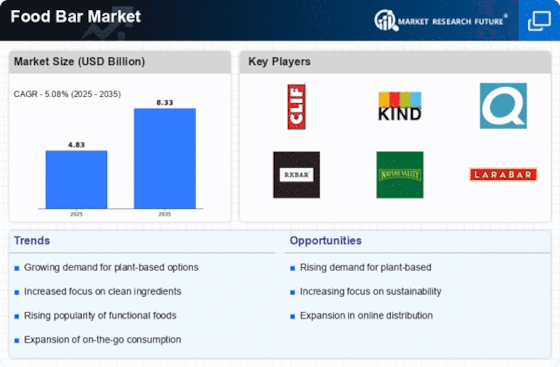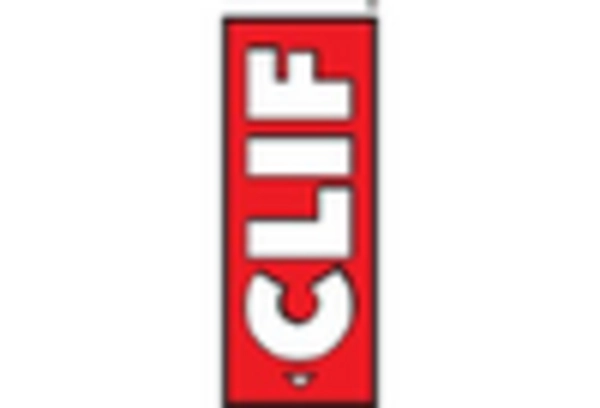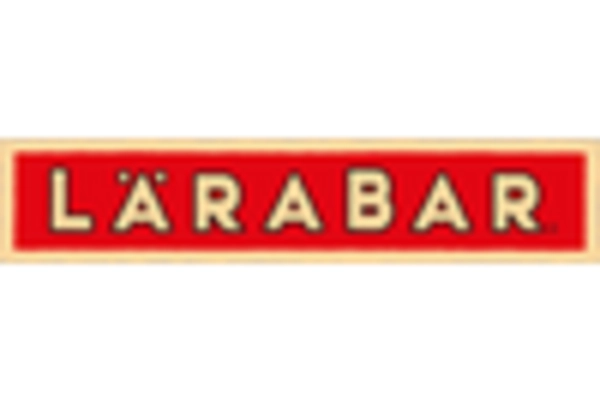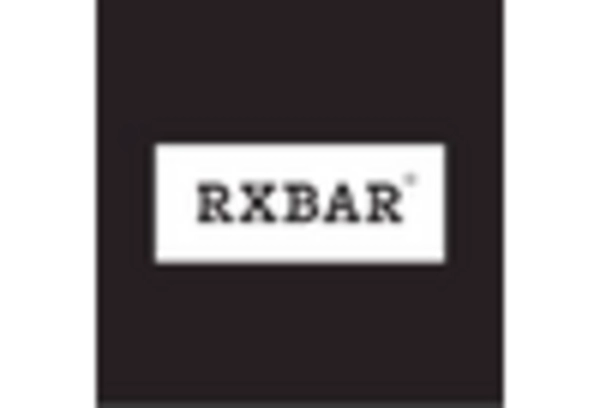Market Trends
Key Emerging Trends in the Food bar Market
The food bar market is undergoing transformative trends fueled by shifting consumer preferences, health-conscious lifestyles, and the demand for convenient, on-the-go nutrition. One significant trend is the increasing popularity of functional and protein-packed food bars. As consumers prioritize health and wellness, food bars that offer a balance of macronutrients, vitamins, and minerals are gaining traction. Protein-rich bars, in particular, are sought after by fitness enthusiasts and individuals looking for convenient post-workout or snack options, driving innovation in flavor profiles and ingredient formulations within the food bar market. Furthermore, the market is experiencing a surge in demand for clean-label and natural ingredient options. Consumers are becoming more discerning, seeking food bars with minimal processing, fewer additives, and recognizable, wholesome ingredients. This trend reflects a broader shift towards clean eating, where transparency in labeling and an emphasis on natural, nutrient-dense components are essential factors influencing purchasing decisions within the food bar market. The rise of plant-based diets is also impacting the food bar market, with an increasing number of consumers opting for vegetarian and vegan options. Plant-based food bars, often featuring ingredients like nuts, seeds, and plant-derived proteins, cater to the growing demand for sustainable and cruelty-free food choices. This trend aligns with environmental consciousness, and manufacturers are responding by expanding their plant-based food bar offerings to meet diverse dietary preferences. Moreover, the food bar market is witnessing the convergence of flavors and functional ingredients. Consumers are seeking not only nutritional benefits but also unique and exciting taste experiences. Manufacturers are incorporating exotic flavors, superfoods, and adaptogens into their food bar formulations to create innovative and appealing products. The intersection of flavor and functionality allows food bars to cater to a broader consumer base, including those looking for both health benefits and sensory enjoyment. The online retail boom has significantly influenced the distribution and accessibility of food bars. E-commerce platforms offer consumers a convenient way to explore and purchase a wide variety of food bars, providing access to niche and specialty products that may not be readily available in traditional brick-and-mortar stores. This digital shift has opened up new avenues for both established and emerging brands in the food bar market to reach a broader audience. However, challenges such as competition, shelf stability, and taste consistency remain for manufacturers in the food bar market. With a plethora of options available, standing out in a competitive landscape requires a focus on unique selling propositions, innovative formulations, and effective marketing strategies. Additionally, addressing challenges related to shelf stability, especially for bars without preservatives, is crucial to ensure product quality and safety.


















Leave a Comment